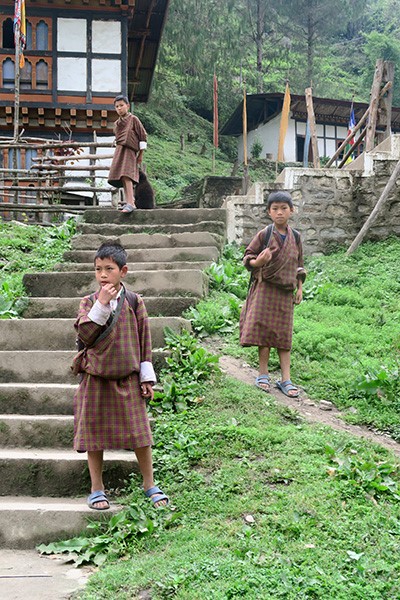– Joaquim Magalhães de Castro
Estevão Cacela reserves some of the pages of his account to give us a general description of the kingdom that had the privilege of witness. It tells us that Bhutan “is rather large and extended and very populated, having this king subjected himself to the voluntary manner without anyone having the obligation to follow him or to follow his doctrine, nor to have the power of people to constrain anyone to anything; rather, as his main income is in what the people voluntarily give him, no one wants to be displeased, and each one is very free to do whatever he wants, as the same king has often told us, telling us also about his lamas that are the most close to him.”
In his Relation, Cacela also give us some particularities regarding the physical and climatic characteristics of those lands. He tells us that the climate is very healthy because “since we entered these mountains, we have always had very good health,” establishing a parallel with India where the priest had never “felt good” concerning health issues. He also tell us that it was very rare to find someone sick and many were “those who are old and have health and vigor.” Proof of this was the young men who accompanied them, “being formerly sick, here in these mountains have been in perfect health.”
The priest also reports that in the seven months of stay the climate was always temperate and not cold, however, warning about the the period “from November to February which are much colder.” But that was not a problem because for the cold “there are many good woolen cloths that everyone is dressed in.”
Wheat, rice and meat abounded in this land, “all of it very cheap.” The wheat to which it refers is most probably buckwheat, still today the staple diet of the eastern region of Bhutan.
Of the fruits it claims to be large and good: “pears of many varieties, some very large, all good, very good peaches, apples, walnuts, quinces, all in abundance”. Cacela stresses a particular fruit, the jambo. He also praises the quality of peas and turnips, “apart from other things and more appropriate fruits of this land.” He tells us that there was no local fish, but different kinds of dry fish was brought there from the “Salt Lake, where salt also comes from.” This essential good also came from the Indian coast, via Kingdom of Cooch Bihar.


 Follow
Follow


